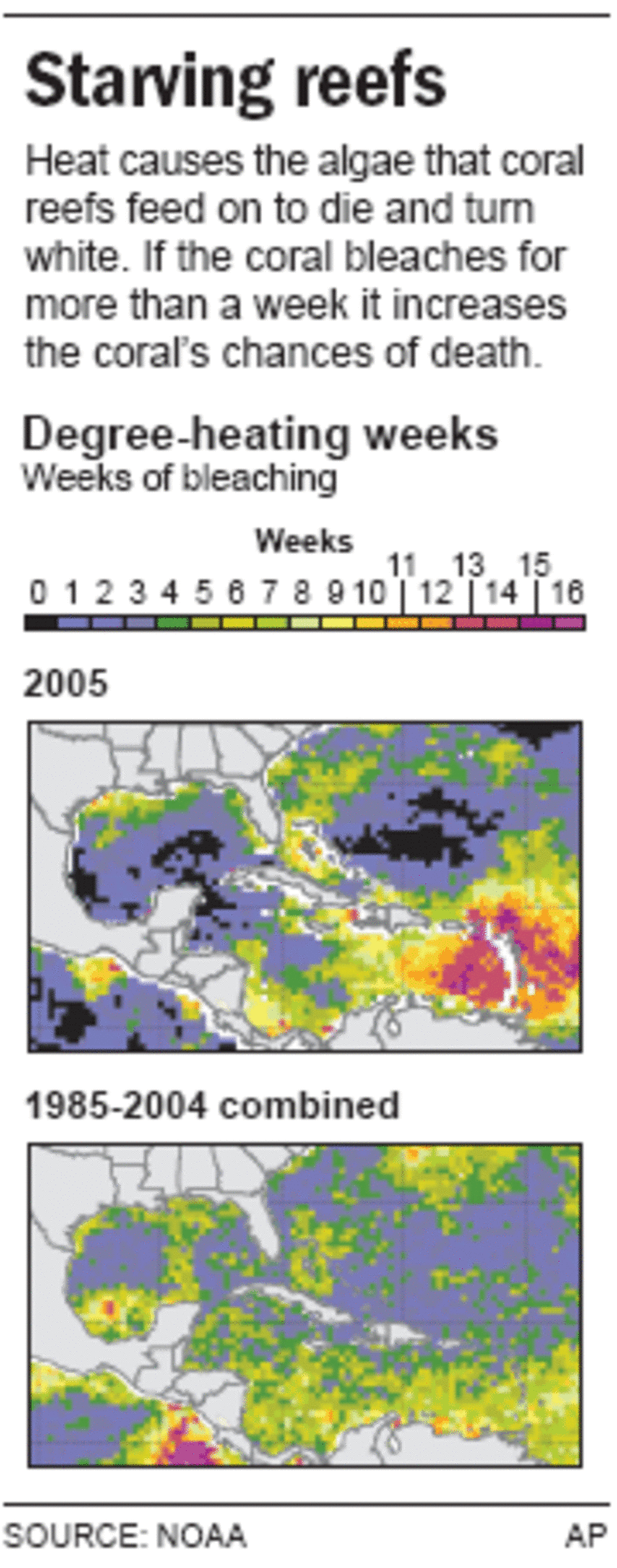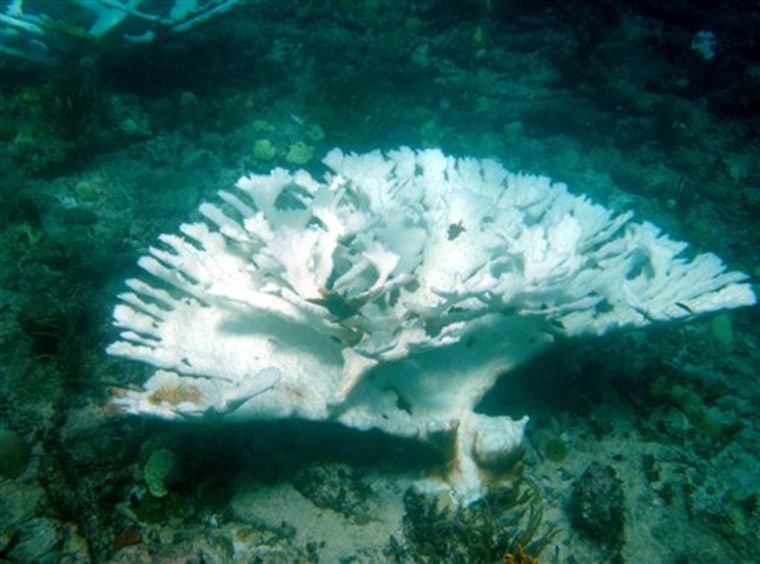Elkhorn and staghorn coral in Florida and Caribbean waters — ecosystem anchors for nearly 500,000 years — are at risk of extinction due to warmer waters and other factors, and thus merit Endangered Species Act protection, the Bush administration said Thursday.
The National Marine Fisheries Service said the administration will list the two species as threatened under the law — a listing that would require drafting a recovery plan and protecting critical habitat.
“This listing is highly significant for coral reef conservation, as these are the first coral species to be listed as threatened or endangered under the Endangered Species Act,” Conrad Lautenbacher, head of the National Oceanic and Atmospheric Administration, said in a statement. “It is extremely important that we protect corals as they are a major source of ocean life.”
The elkhorn and staghorn coral species have suffered a 97 percent decline in areas off the Florida Keys and in the Caribbean since 1985, the National Marine Fisheries Service says.
The warmer waters cause the symbiotic algae that provides food for the coral to die and turn white. That puts the coral in critical condition. If coral remains bleached for more than a week, the chance of death soars. Other stresses on coral include sewage and storm damage.
The U.S. Virgin Islands have been particularly hard hit.
Of more than 460 elkhorn colonies in the Virgin Islands National Park monitored by the U.S. Geological Survey, 45 percent bleached, 13 percent had some die-off, and 8 percent were completely wiped out.
“We haven’t seen an event of this magnitude in the Caribbean before,” Mark Eakin, coordinator of the U.S. Coral Reef Watch, said earlier this year when the data started coming in.
Climate change cited
Sea surface temperature figures show the sustained heating in the Caribbean last summer and fall was by far the worst in 21 years of satellite monitoring.
In its 2005 State of Coral Reef Ecosystems, the National Oceanic and Atmospheric Administration said that “climate change, whether due to natural variability or human activity, is central to several of the threats impacting coral reef ecosystems.”
Scientists note that the Caribbean is actually better off than areas of the Indian and Pacific ocean where mortality rates — mostly from warming waters — have been in the 90 percent range in past years, said Tom Goreau of the Global Coral Reef Alliance.
Goreau has called what’s happening worldwide “an underwater holocaust.”
Manmade problem?
The U.S. listing, which will become final after informational meetings for the public, comes three months after the administration agreed to study whether polar bears might also require protection given melting habitat in the Arctic.

The coral decision was in response to a petition for protection by the Center for Biological Diversity, which contends that the common thread is manmade emissions of greenhouse gases that many scientists tie to global warming.
“Federal officials have acknowledged that global warming is an engine driving our coral reefs toward extinction,” center researcher Brent Plater said in a statement. “We must act quickly to reduce global warming emissions before it is too late to recover our corals.”
“Requiring greenhouse-gas emitting industries to consider how their activities are impacting our most productive marine ecosystems is not only scientifically sound but also eminently sensible,” Plater added. “The destruction and loss of these coral species would result in the loss of billions of dollars to our economy, the loss of an unknown number of medicines, and decimate local biodiversity. It’s just common sense to consider these impacts before it is too late.”
Much of the industrialized world is part of the Kyoto climate accord, which requires greenhouse gas reductions, but the Bush administration has refused to join, arguing that it would harm the U.S. economy and unfairly excludes fast developing nations like China and India.
